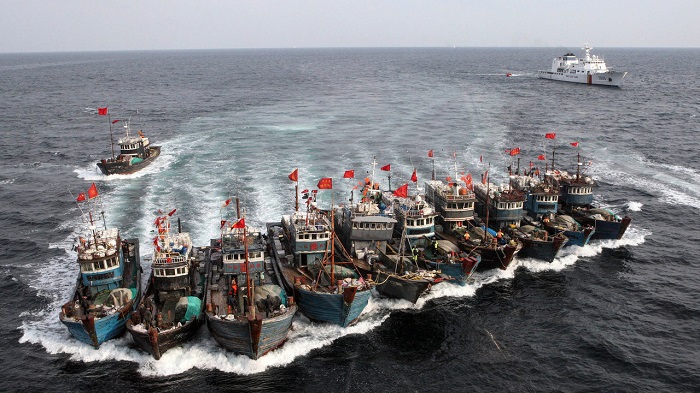Amidst the high cost of living in South African, illegal fishing is a growing challenge for the countries fishing industry. While the situation has remained critical for years, earlier this year the South African navy intercepted nine Chinese vessels close to Durban. In a second incident, three trawlers intercepted in East London are estimated to have poached R70-million worth of squid. In light of growing concerns within the fishing community, the South African United Fishing Front (SAUFF) is saying that more needs to be done to combat continued illegal fishing.
Chairperson and founder SAUFF, Pedro Garcia explains that illegal fishing is one of the biggest threats to global food security and has resulted in the annual loss of approximately 8 billion USD in profits.
Last year, South Africa hosted the first fish crimes symposium, which was attended by a ray of international agencies, such as Interpol.
Garcia, therefore, notes that illegal fishing should not be viewed as fish that’s been stolen. Instead, it should be understood that the practice includes; slave labour, murder, sex trade, human trafficking, and drug smuggling.
“If we [South Africans] want to preserve our marine resources, we have to step-up and employ a cohesive approach. Since we deal with trans-boundary issues, Africa has to unite and fight the scourge of illegal fishing in our coastal waters and in our economic zones,” he continued.
Garcia says that while there are mechanisms in place to deal with the crises of illegal fishing and its subsequent impact on the industry, the lack of monitoring capacity has slowed the process.
Garcia further notes that the type of equipment used by illegal fishermen in many instances pollutes the environment.
“[Certain fishing equipment] does damage the environment, in certain cases permanently. So we need bring attention to this because we are doing damage that could take hundreds of years to repair – we have a very fragile ecosystem, which we need to protect at all costs.”
In addition to illegal fishing, he explains that over-fishing has an adverse impact on the environment, particularly the food chain in certain areas.
As one of the last affordable sources of proteins and micronutrients, Garcia says that at a local level, individuals are unable to easily access the resource.
Closer to home, Garcia affirms that despite political undertones in the decision making processors within the industry, the South African government has made strides in assisting in combatting illegal fishing.
“The public outcry is at such a level that illegal fishing can no longer be ignored,” he asserts.
VOC






 WhatsApp us
WhatsApp us 

